
Simone Weil
French philosopher
Lived from: 1909 - 1943
Category: Philosophers Country: ![]() France
France
Born: 3 february 1909 Died: 24 august 1943
Quotes 21 till 40 of 80.
-
Human beings are so made that the ones who do the crushing feel nothing; it is the person crushed who feels what is happening. Unless one has placed oneself on the side of the oppressed, to feel with them, one cannot understand.
― Simone Weil -
I am not a Catholic; but I consider the Christian idea, which has its roots in Greek thought and in the course of the centuries has nourished all of our European civilization, as something that one cannot renounce without becoming degraded.
― Simone Weil -
I can, therefore I am.
― Simone Weil -
I suffer more from the humiliations inflicted by my country than from those inflicted on her.
― Simone Weil -
I would suggest that barbarism be considered as a permanent and universal human characteristic which becomes more or less pronounced according to the play of circumstances.
― Simone Weil -
If Germany, thanks to Hitler and his successors, were to enslave the European nations and destroy most of the treasures of their past, future historians would certainly pronounce that she had civilized Europe.
― Simone Weil -
If we are suffering illness, poverty, or misfortune, we think we shall be satisfied on the day it ceases. But there too, we know it is false; so soon as one has got used to not suffering one wants something else.
― Simone Weil -
Imagination and fiction make up more than three quarters of our life.
― Simone Weil -
Imagination is always the fabric of social life and the dynamic of history. The influence of real needs and compulsions, of real interests and materials, is indirect because the crowd is never conscious of it.
― Simone Weil -
In struggling against anguish one never produces serenity; the struggle against anguish only produces new forms of anguish.
― Simone Weil -
Humanism was not wrong in thinking that truth, beauty, liberty, and equality are of infinite value, but in thinking that man can get them for himself without grace.
― Simone Weil -
In the Church, considered as a social organism, the mysteries inevitably degenerate into beliefs.
― Simone Weil -
It is an eternal obligation toward the human being not to let him suffer from hunger when one has a chance of coming to his assistance.
― Simone Weil -
It is only the impossible that is possible for God. He has given over the possible to the mechanics of matter and the autonomy of his creatures.
― Simone Weil -
It would seem that man was born a slave, and that slavery is his natural condition. At the same time nothing on earth can stop man from feeling himself born for liberty. Never, whatever may happen, can he accept servitude; for he is a thinking creature.
― Simone Weil -
Learn to reject friendship, or rather the dream of friendship. To want friendship is a great fault. Friendship ought to be a gratuitous joy, like the joys afforded by art, or life (like aesthetic joys). I must refuse it in order to be worthy to receive it
― Simone Weil -
Life does not need to mutilate itself in order to be pure.
― Simone Weil -
Misfortunes leave wounds which bleed drop by drop even in sleep; thus little by little they train man by force and dispose him to wisdom in spite of himself. Man must learn to think of himself as a limited and dependent being; and only suffering teaches
― Simone Weil -
Nothing can have as its destination anything other than its origin. The contrary idea, the idea of progress, is poison.
― Simone Weil -
Nothing is less instructive than a machine.
― Simone Weil
All Simone Weil famous quotes and sayings you will always find on greatest-quotations.com (page 2)
Subjects in these quotes:
Similar authors
-
 Denis Diderot
Denis Diderot
French philosopher 38 -
 Vauvenargues
Vauvenargues
French philosopher 31 -
 Charles De Montesquieu
Charles De Montesquieu
French philosopher 21 -
 René Descartes
René Descartes
French philosopher, scientist 12 -
 Guy Debord
Guy Debord
French philosopher 8 -
 Henri-Louis Bergson
Henri-Louis Bergson
French philosopher and Nobel Prize winner in Literature (1927) 7 -
 Claude Adrien Helvetius
Claude Adrien Helvetius
French philosopher 5 -
 Alain Badiou
Alain Badiou
French philosopher 4
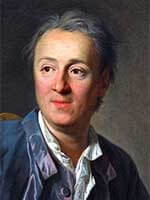 Denis Diderot
Denis Diderot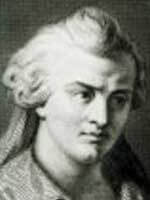 Vauvenargues
Vauvenargues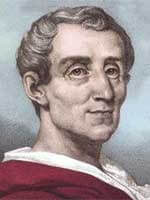 Charles De Montesquieu
Charles De Montesquieu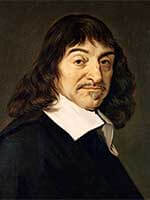 René Descartes
René Descartes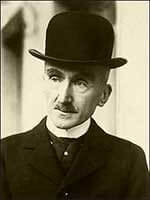 Henri-Louis Bergson
Henri-Louis Bergson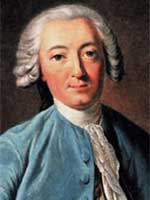 Claude Adrien Helvetius
Claude Adrien Helvetius